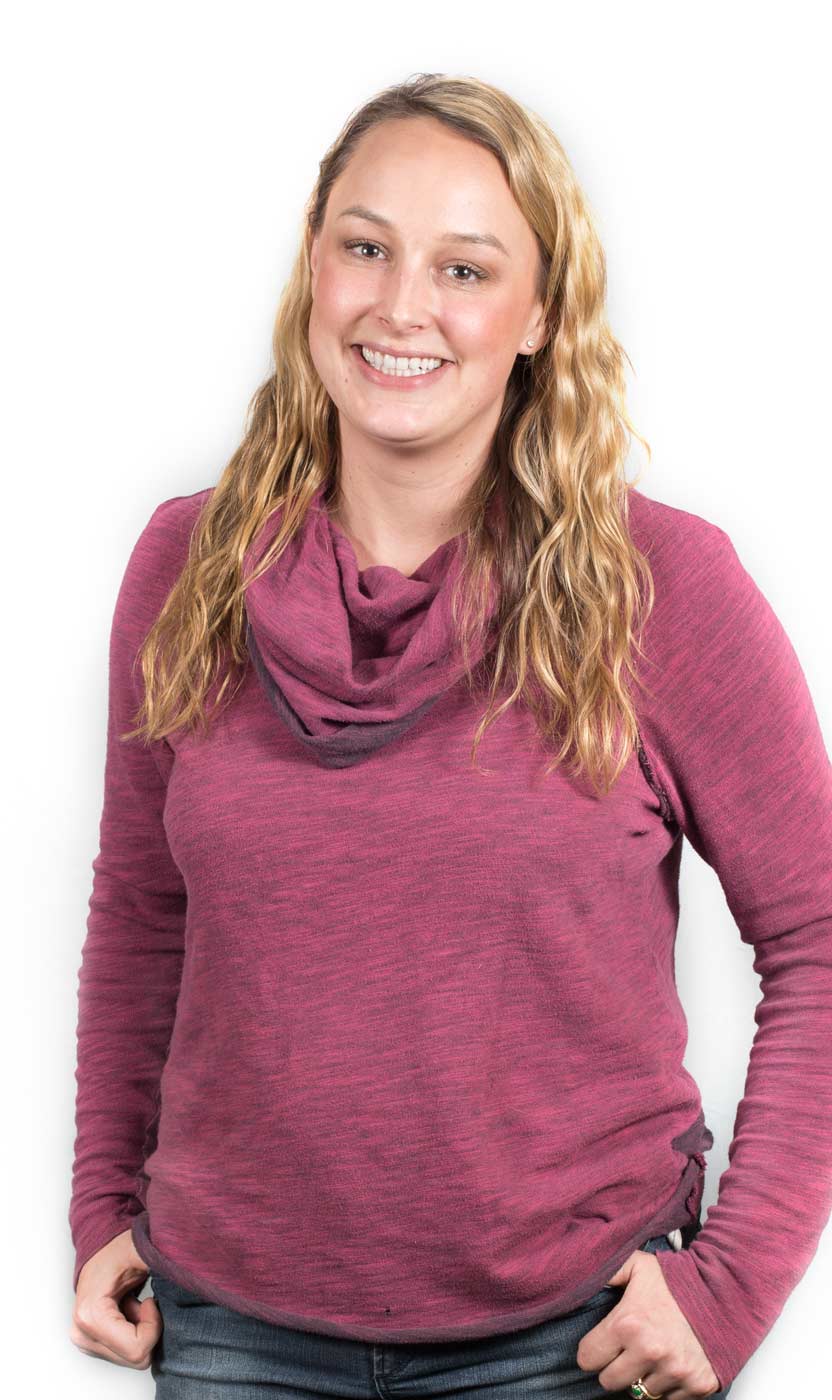family background/ Lacey grew up working alongside her family on their farm Hulbert Farms and Skagit Seed Services in La Conner, Washington.
age/27
grower/Pasco, Washington
crops/grapes
business/Vineyard Manager, Sagemoor Vineyards
 How did you get your start?
How did you get your start?
As a recent graduate of Washington State University, I joined Ste. Michelle Wine Estates as an intern and learned from the best in the wine industry.
I also did a stint working in grower relations on the Wahluke Slope. I’m still amazed that at that time I was approached with my dream job during a field interview, just discussing business.
I believe through my early work learning from other growers and cultivating relationships has led me to my position with Sagemoor.
Did you always want to be a grower?
I grew up on the family farm in the Skagit Valley growing seed crops and processing onion seed. In high school, I was sorting dirt clods looking for daffodil bulbs or counting onion seeds the size of a pin point.
After high school, I wasn’t sure I wanted to be in agriculture. I was resistant to the idea of being tied to a farm and living on the farm.
It’s such a lifestyle, not a career choice. In my crops 102 class at WSU, they covered viticulture for one week. At that time, I just fell in love with the concept of growing the best product possible, not for an amount or a certain set price, but to provide the best crop for a winemaker.
I fell in love with how pouring your heart into growing wine grapes is so tied to the end consumer.
What college programs continue to help you today?
When I started picking up viticulture and enology classes, those subjects drew my attention along with joining the V&E club and horticulture clubs at WSU.
I took every opportunity that came my way. My degree is in agriculture food systems, which is a little different route than most enrolled in the V&E program.
I chose to add marketing and public relations into my coursework to get beyond just having a science based degree and to help me communicate science to the public effectively.
I remember going on a field tour to Gamache Vineyards and having Roger Gamache pour us some Syrah while standing in that particular Syrah block.
Having that real tailgate experience, then seven years later I was fortunate enough that Allan Brothers purchased Gamache. Now I get to manage those 180 acres and build a team who’ll execute excellent viticulture.
What would you recommend about college programs?
I would encourage anyone who is studying viticulture and enology, or has an interest on the business side of wine marketing, to integrate your studies with classes from other disciplines.
Take business management courses for one — I wish I would have taken accounting because it would have really helped now that I’m writing budgets for so many different ranches.
The coursework required for your degree is just a launching point to fulfill yourself. Choose classwork that’s going to contribute to your success down the road.
What can farmers improve on?
As farmers, we don’t realize that some people have never left a city. Some people have never stepped foot on a farm that’s producing crops.
Being able to communicate those agricultural-based challenges, whether it’s weather related or pest and disease issues, I think farmers need to know there’s a disconnect between the work that they do and what the public thinks they do.
Being able to communicate those issues and really share what you do in a way everyone can understand is key.
How do you see the future of data use in farming?
It’s a huge component. When I was young, my grandfather, James Hulbert, used to keep a DayMinder that he started after returning from World War II. I could go back and look at frost dates, etc. It was our own Farmer’s Almanac for what went on that year at the farm.
The little bit of data that he was keeping at that point and being able to see how important record keeping was to the farm.
Now that I work at Sagemoor, I work with Miguel de la Mora and Victor Perez, who have for 35 years worked at Bacchus and Dionysus Vineyard, they both have DayMinders going back since they began. Part of my job is unlocking some of that original information through modern data collection techniques.
That way if there was a fire, I wouldn’t lose all that valuable information that’s so key for us to move forward.
We are pursuing our own applications with Allan Brothers, our parent company, to track anything from cluster counts to vine weights, tracking pesticide and water use, and build a database to look back several years.
For example, like in 2016 where vine weights were outside of average, we could look back and compare against past years and spot anomalies really clearly.
Those who trusted the data removed an appropriate amount of fruit, preventing headaches for themselves and the wineries when harvest came.
– by TJ Mullinax






Leave A Comment